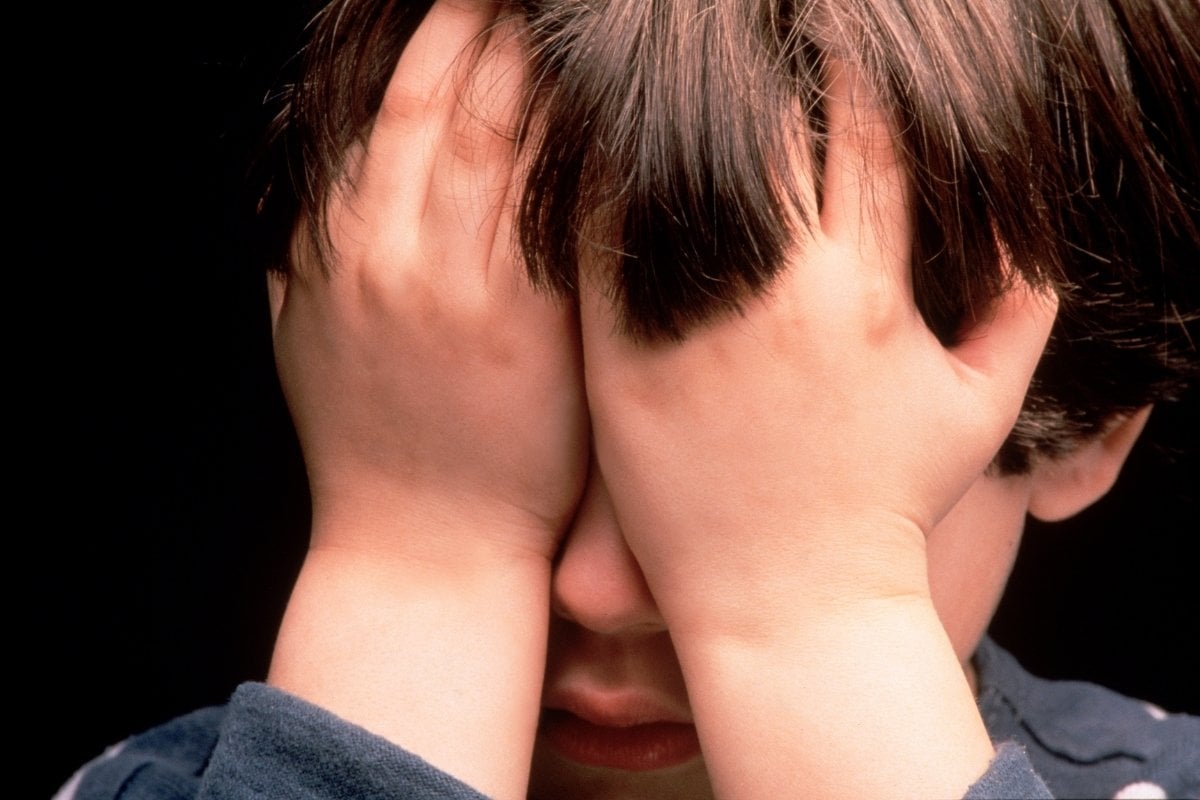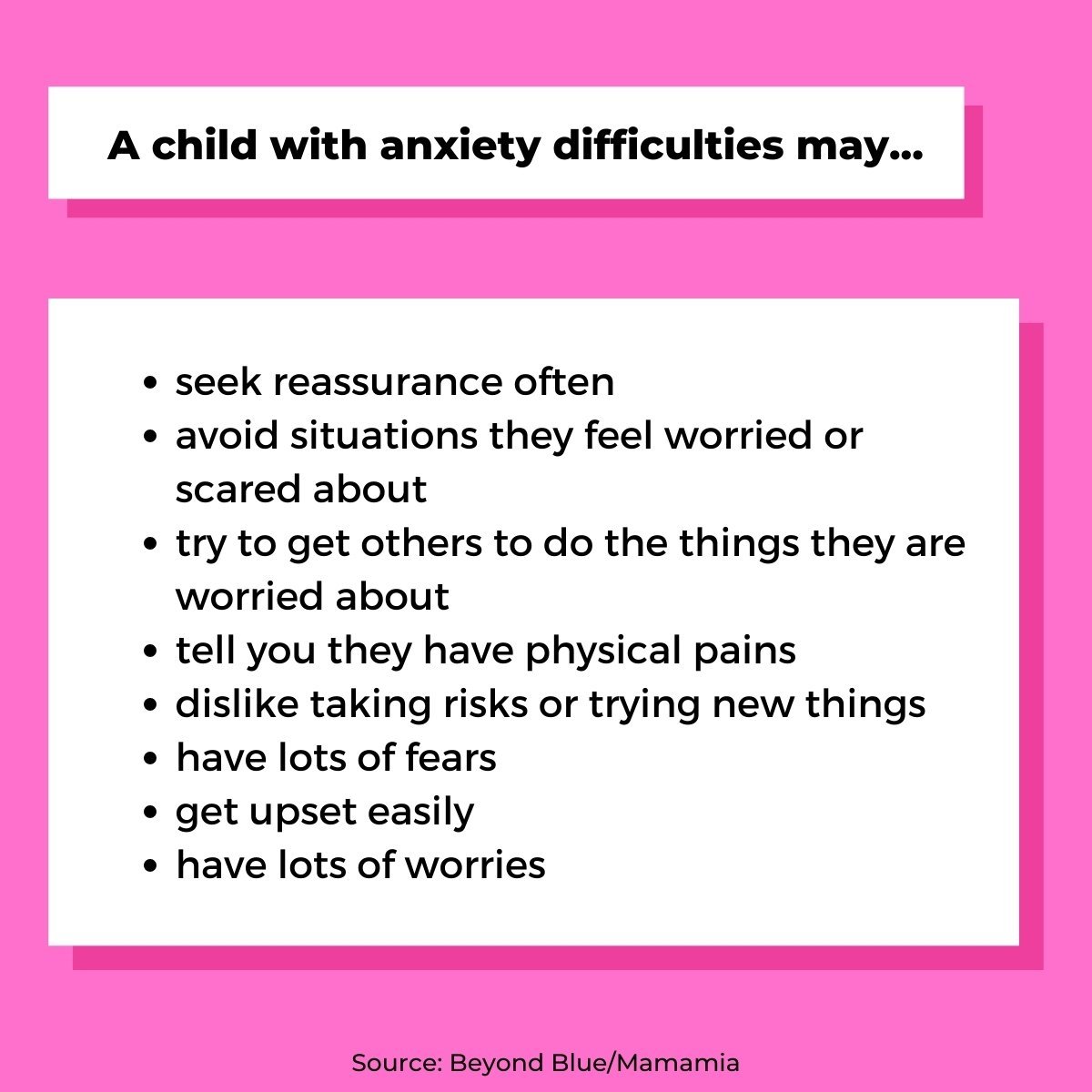
It's normal for children to feel anxious occasionally; it's part of being human. Our bodies have evolved to trigger these feelings so that we can detect and avoid potentially dangerous situations.
But what about when your child displays feelings of anxiety around non-threatening events, like going to school, or to sports training, or a birthday party?
Mamamia's parenting podcast, This Glorious Mess, spoke to parenting educator and qualified counsellor Maggie Dent to find out some of the best strategies parents can adopt to help soothe their anxious child.
Watch: Clinical psychologist Amanda Gordon on talking to children about anxiety during the pandemic.
First, Maggie noted, it's important to distinguish between healthy and unhealthy worries or anxiety.
There are four questions to ask that can help establish that.
The first question is one that parents need to ask themselves:
Is the anxiety stopping my child from participating in life at the levels that we feel is to their advantage?






























































































